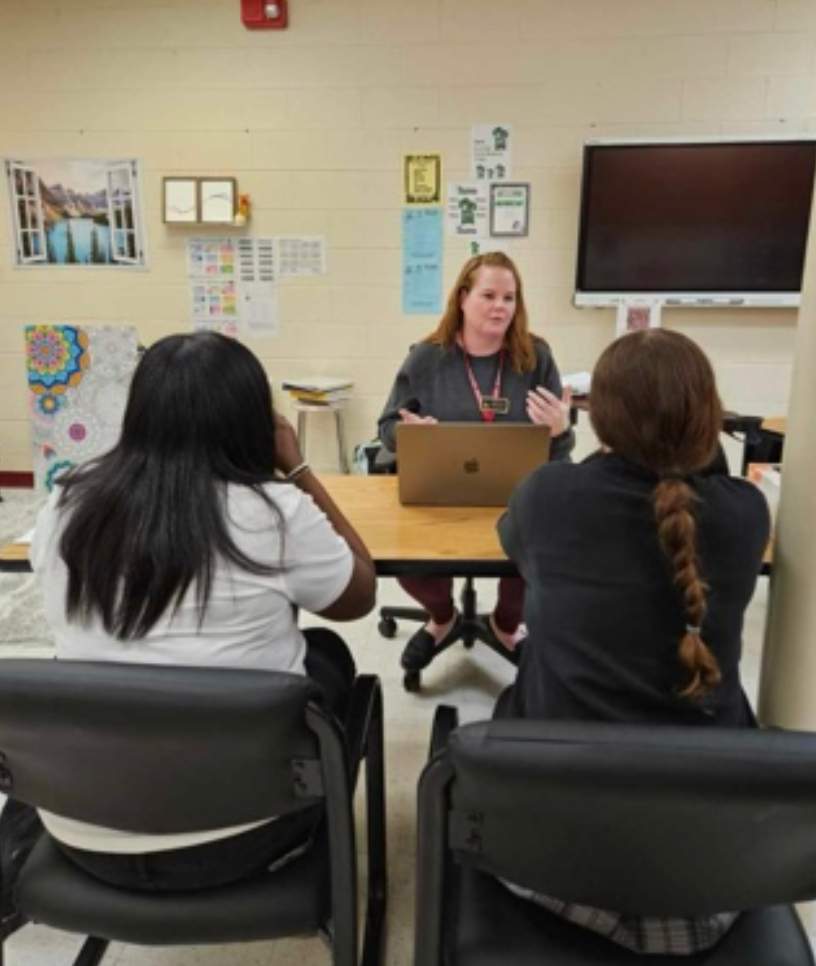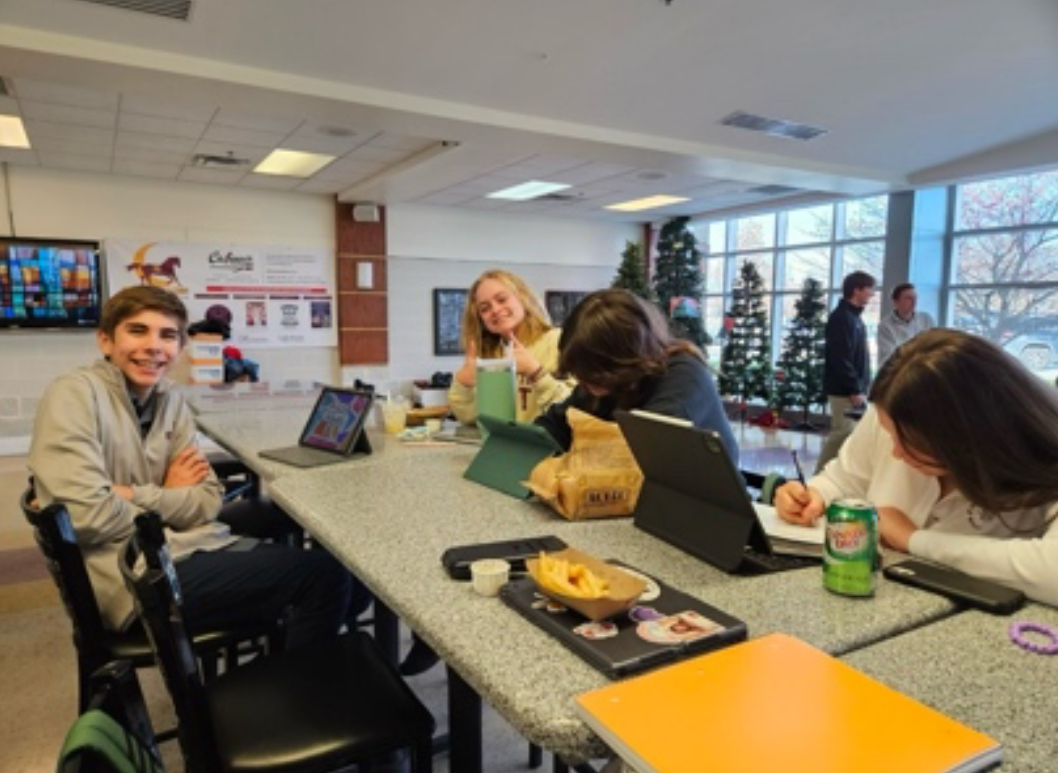
Before the “ho, ho, ho” comes the “woe, woe, woe.” Midterms start the week before Christmas break and, until they are finished, the best hack to doing well is to prepare for them.
Freshman Lilah Rawson remarked that she feels pressured for midterms. For her, it feels like teachers are cramming information and projects into the last few weeks of school to make sure all of the information is discussed.
Since exams are one of the most stressful times of the year for students, Mrs. Rachel Vidd, Director of Academic Support, compiled her best strategies for test taking. These are as follows:
Step 1: Make a study schedule. Break down your study sessions into smaller chunks. You should focus on one subject at a time, maybe one day per subject, and prioritize difficult subjects that require more attention first.
Ava Weekly, a junior, said, “I start making a study timetable around a month before and prioritize the tests I have first and the tests that are the hardest and start studying those first. I map out all of my lunch periods and study halls and decide what I am going to study and when.”
Step 2: Find a good study environment. Choose a quiet and well-lit study area where you can concentrate without distractions, like the library, your bedroom, or even Panera. Make sure you have all materials you’ll need.
Step 3: Use active learning. Reach out to Mrs. Vidd for more specific strategies that align with your individual learning style. Summarize information in your own words or teach the material to someone else. Flashcards aren’t just for grade school; they can be used to help study vocabulary or memorize events. Test yourself with practice questions or quizzes, and create mnemonic devices or acronyms.
Sophomore Rayna Rippey said, “I feel like you have to study and be confident so you come into the test mentally prepared. I think the most important thing is to go to sleep at a good time the night before.”
Step 4: Take breaks. Break your study sessions into smaller intervals, maybe 25-30 minutes, and take short breaks in between. You could go for a walk, help your parents cook dinner, or play a game of Fortnite while the old map is still available.

Step 5: Sleep. “Aim for 7-9 hours of sleep each night,” advises Mrs. Vidd. “Avoid studying late into the night as it can negatively impact your memory and concentration. Do something to help you relax and unwind before sleep — no screens!”
As terrible as it sounds, going to bed a little bit earlier than usual will help you with exams. For example, instead of going to bed at 1:30, try and be in bed a little after midnight. This will help you get to school before 7:59 in the morning.
Junior Ethan Bowman gets to school early and looks over key topics to jog his memory to help him feel confident before a test.
Step 6: Protect your health and relieve stress. Physical activity helps to reduce stress and improve focus. Try walking (don’t forget the dog) or doing yoga to relax. You could also try relaxation techniques — breathing exercises, meditation, or listening to calming music. Being less stressed makes it more likely for your brain to retain information. Eating a balanced diet with brain-boosting foods like fruits, vegetables, and whole grains.
Use these steps to fully prepare for exams. Good luck on midterms and happy studying WJ!






